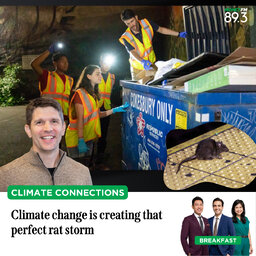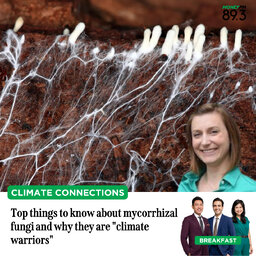Climate Connections: Turn off for Take-off - Dark Sky So Shearwaters Fly
Have you been to Phillip Island Nature Parks in Australia?
It’s home to the largest little penguin population - better known as fairy penguins - globally. They’re the smallest penguin species in the world.
But today’s focus is on another seabird - short-tailed shearwaters that use Phillip Island as their breeding grounds! From this week, four-month old fledglings are starting their migration and the Phillip Island Nature Parks is calling for individuals and businesses on the island to switch off their lights at night.
Short-tailed shearwaters are mid-sized migratory birds that travel from the Southern to Northern Hemisphere each year, migrating from Australia towards Japan, then across to the Bering Sea and Chukchi Sea to the north of Alaska. They manage this massive 16,000km journey in under four weeks, all before returning to the shores of Phillip Island (Millowl).
Among the most vulnerable are seabirds, with shearwaters facing the greatest risk. In a series of studies by Phillip Island Nature Parks exploring the negative effect of artificial lights on shearwaters, light pollution is now at the forefront of negative factors disrupting the delicate balance of ecosystems.
On this episode of Climate Connections, Dr Duncan Sutherland, Senior Scientist, Phillip Island Nature Parks why the night lights are so detrimental to the short-tailed shearwaters during migration season, conservation efforts under the "Dark Sky So Shearwaters Fly" campaign and how you can do your part.
Feature produced and edited by: Yeo Kai Ting (ykaiting@sph.com.sg)
Voiced by: Audrey Siek
Photo/Sound credits: Phillip Island Nature Parks
Music credits: pixabay & its talented community of contributors
In 3 playlist(s)
Climate Connections
A special segment on MONEY FM 89.3's Breakfast Show that brings you on an exclusive audio journey to…Social links
Follow podcast
Recent clips

Climate Connections: Why do the pH levels of the early oceans matter? And what does it tell us about Earth’s evolving habitability in the broader context of climate change?
13:01

Climate Connections: Climate change is creating that perfect rat storm
16:53

Climate Connections: Top things to know about mycorrhizal fungi and why they are "climate warriors"
14:44
 Climate Connections
Climate Connections

